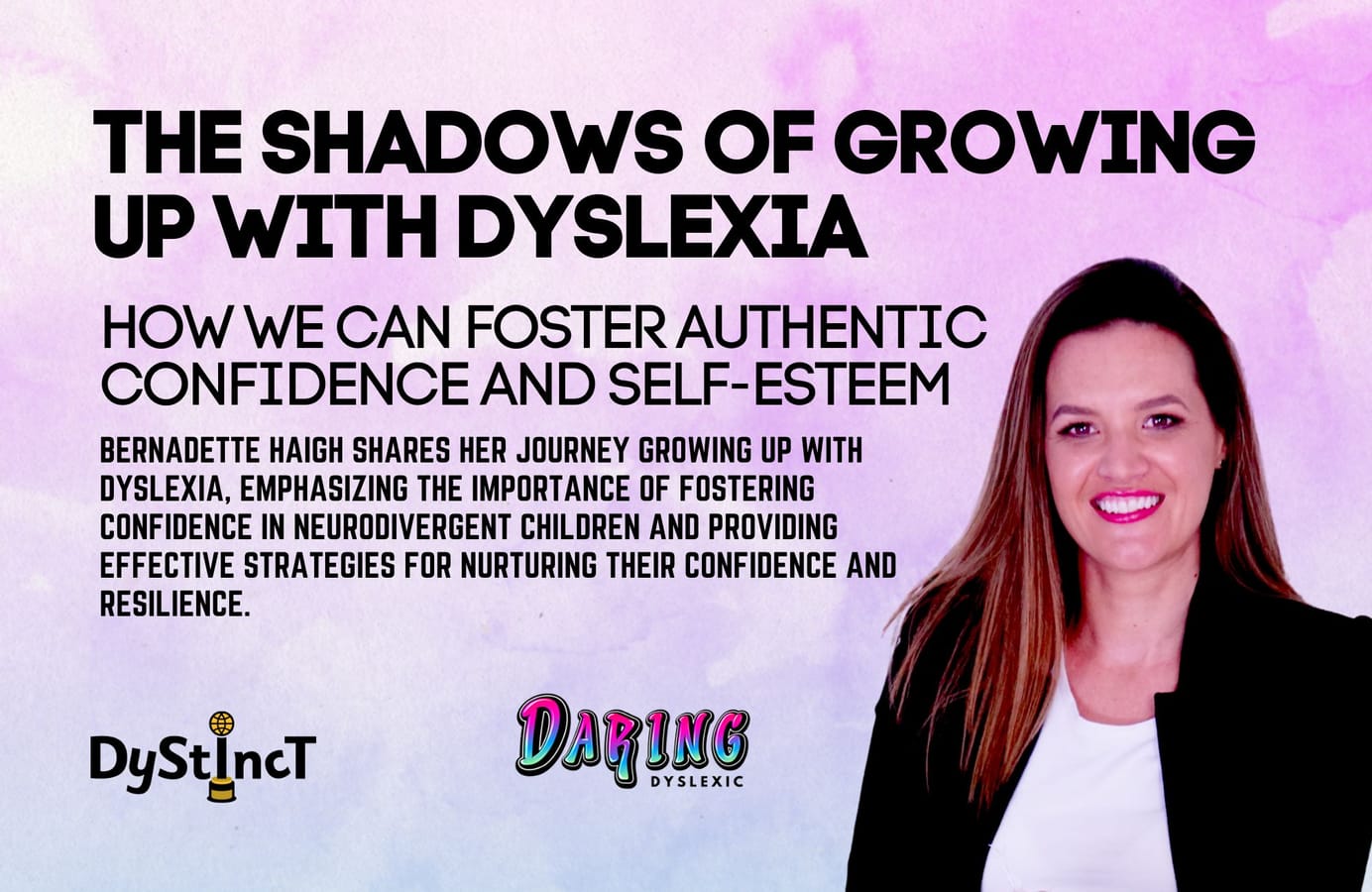
Issue 22: The Shadows of Growing up with Dyslexia: How We Can Foster Authentic Confidence and Self-Esteem | Bernadette Haigh
Bernadette Haigh shares her journey growing up with dyslexia, emphasizing the importance of fostering confidence in neurodivergent children and providing effective strategies for nurturing their confidence and resilience.
This post is for paying subscribers only
SubscribeAlready have an account? Log in


